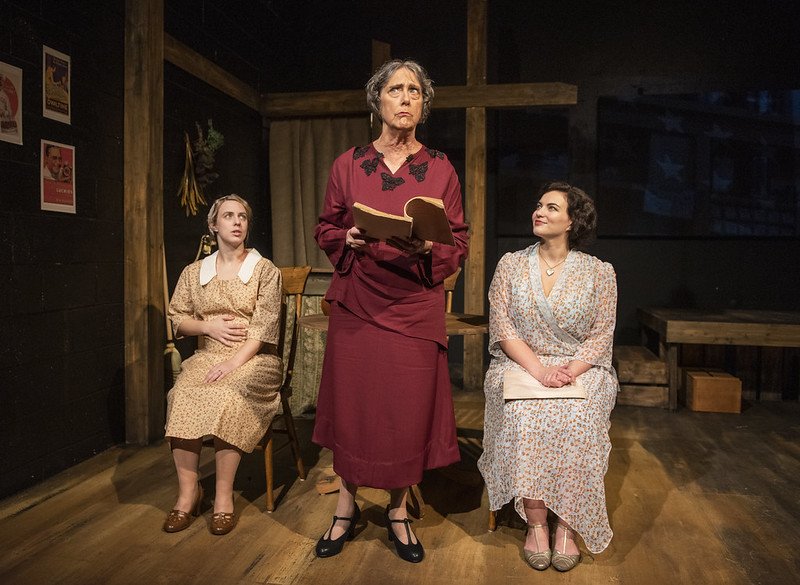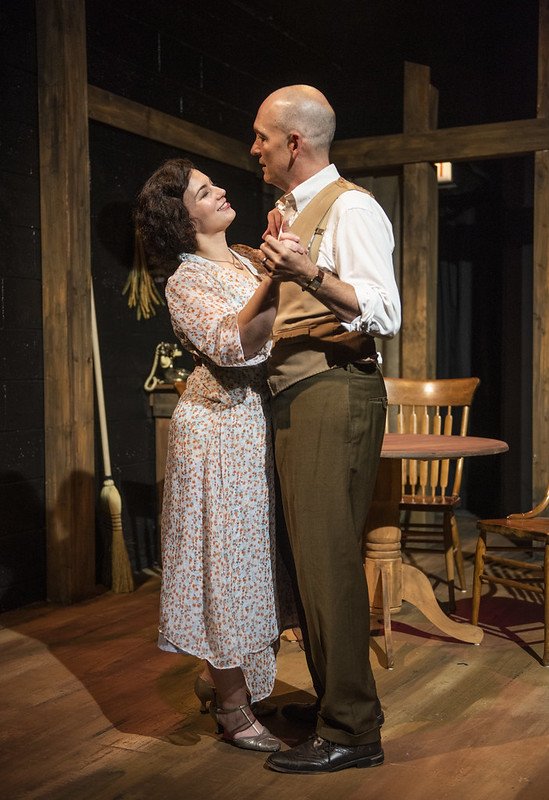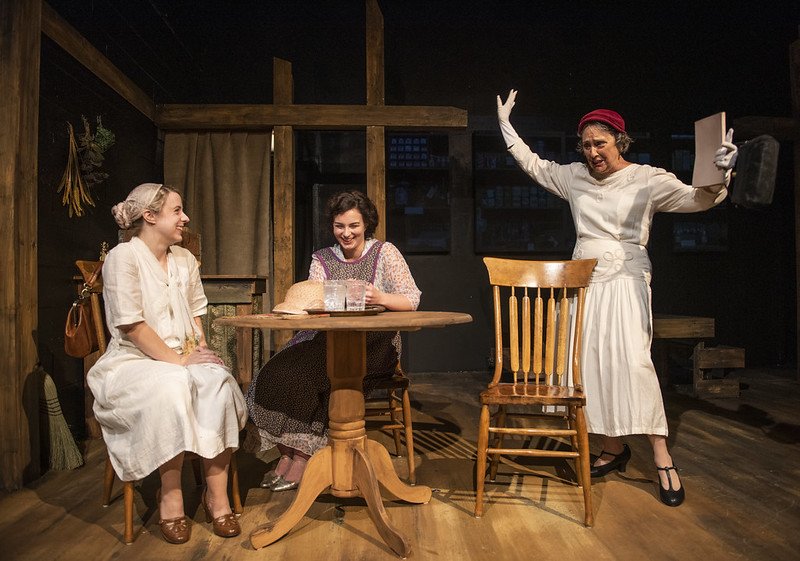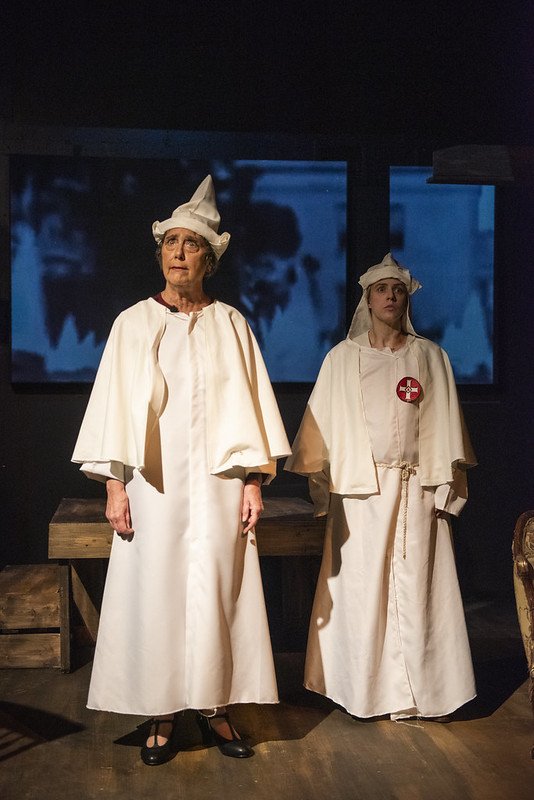Invisible | Her Story Theater
3 out of 4 stars
(originally published on Chicago Stage Standard)
Now playing at Stage 773, Mary Bonnett's INVISIBLE directed Cecilie Keenan imagines a woman in a small Mississippi town in 1925 forced to reconcile her involvement in the rising national Women’s Ku Klux Klan movement with her religious beliefs and sense of decency. Her neighbors have convinced her of the justness of the cause, but the arrival in town of a Chicago newspaper reporter just as their WKKK chapter is gaining momentum, forces Mabel to question her involvement and convictions.
For some historical context, the WKKK turned its main attention toward Immigrants, Catholics and Jews, while the Klans of the Reconstructionist Era and Civil Rights Movement specifically targeted the African American community. Under the guise of an all welcoming flag of patriotism, they wrapped themselves up in Nationalism, Nativism and Purity -- 100% American. "America for Americans". The newly formed Women's Klan of that era fought their way to power after winning the women's right to vote. They infiltrated churches, schools, civic organizations and appealed to motherhood, the future and safety of children. They were the inventors of "Poison Squads" who spread lies and destroyed reputations.
Opening in a dialogue on pie, Mabel our main protagonist describes pie as being a woman’s calling card. This sets the tone for the rest of the play: a woman’s role. The structure of the play revolves around threes: three women of the Klan, three generations, three repeating letters. I find this to be particularly interesting because often from a historical and cultural lens we find the three fates of Greek Mythology, the holy trinity of Christianity, the three treasures of Buddhism, and the triple goddess of Wicca. The Neo-pagan deity of the triple goddess includes the Maiden, the Mother and the Crone, each symbolizing a stage in the female life cycle. Whether a subconscious choice or purposeful, I believe this adds so much to the work and even makes its way into the set design with a horizontally three-ish marks and upstage a single step platform that raises the eye vertically.
This production is steeped in subtext. Historical basis twists our preconceived knowledge of the South’s prejudices, but the rationalized hype behind the WKKK is just so warped. The women talk about how they threw their first festival complete with Ferris Wheel prior to the piece de resistance, the burning of the cross with everyone in full regalia to end the day’s festivities. Barbara Roeder Harris plays Lucinda, the driving force behind the establishment of the town’s WKKK chapter. Harris does a wonderful job in totally encompassing her character and being fully immersed in every scene.
Lisa McConnell will play Jubilation, the indomitable activist and multi-racial woman who challenges the town’s bigots. McConnell’s monologues were by far chilling. Her character is completely tattooed and as she explains to the Chicago reporter, her art is an illustrated path of her personal history from Asia to Africa. Jubilation seeks the media’s help in exposing the Klan in Mounds, MS and emphasizes the power of the press. This particular plot thread was interesting since it’s true with how much society puts weight behind the media. If it is getting foreground coverage, it is a big deal and deserves attention.
The work challenges the audience by piecing together multiple conflicts in dialogue, woman vs woman, woman vs man, woman vs child. These different scenarios brings a dense material and scope to the unrelenting story. Maddy Flemming plays the mysteriously magical 11-year-old “Ghost Girl” and adds to the traditional two sides we thought the play would follow – black vs. white, yet Flemming’s endearing portrayal of someone between the hard lines rips open this story far wider. What is claimed and unclaimed? Societal approved or rejected. This production throws historical context into your lap to examine and parallel to the troubles of today. Hallow words spoken at your as your mind races to hold onto all the points this work jabs out at you.
This production looks back at the nearly forgotten but significant WKKK. Themes that run throughout this work are very reminiscent of today’s climate. This toxic movement swept across the nation. And to put it simply, “it was when the Klan went mainstream in America”.
INVISIBLE is playing now at Stage 773 through November 3rd, 2019. Tickets are available via www.stage773.com or by phone at 773-327-5252. More information on INVISIBLE and Her Story Theater is available at www.herstorytheater.org



